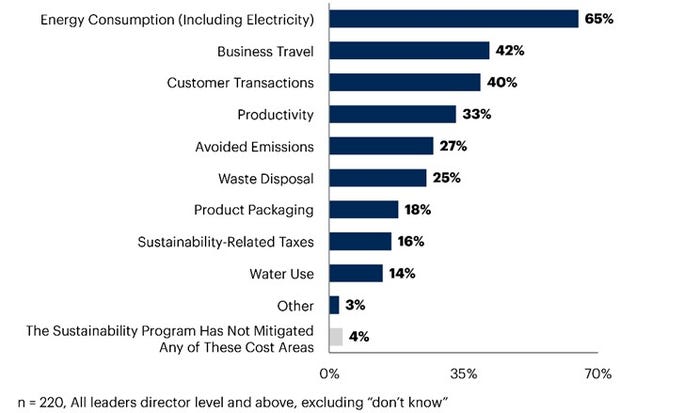We’re in the middle of the annual climate action jamboree known as COP, in which the global public and private sectors strive to show they’re doing their bit for the planet.
November 14, 2022

We’re in the middle of the annual climate action jamboree known as COP, in which the global public and private sectors strive to show they’re doing their bit for the planet.
COP stands for Conference Of the Parties and is the main gathering associated with the United Nations Framework Convention on Climate Change. As the number implies, it has been going for over a quarter of a century and is generally characterised by alarmists calls to action and solemn vows by all concerned to hit arbitrary climate targets at some point in the distant future. This year featured calls for climate reparations – i.e. payments by richer countries to poorer ones.
At the end of week one the GSMA, which represents the world’s big mobile operators, celebrated its members’ ‘meaningful progress’ in maximising the use of renewable energy in their networks. As ever, when it comes to public policy, there was the caveat that they could do even better if only governments and regulators let them. Apparently the mobile industry was among the first to commit to achieving Net Zero by 2050.
“Operators are making meaningful progress in the use of renewables to power communications networks,” said John Giusti, Chief Regulatory Officer at the GSMA. “However, given the scale of demand, the GSMA calls for greater collaboration between the private and public sector to expand the renewable energy infrastructure needed to hit our net zero ambitions. This will require reducing regulatory barriers, supporting market-based mechanisms to access renewable electricity and incentivising investment in new renewable power generation.”
Vodafone has been especially prominent among telcos at the event this year. It was announced as a ‘Principal Partner’ of COP27 in August of this year. “Vodafone believes business success should not come at a cost to the environment, and our partnership at COP27 will showcase the role our digital networks and services play in enabling society to address climate change and in delivering the UN sustainable development goals,” said Vodafone CEO Nick Read at the time.
“After switching Vodafone’s European networks and operations to renewable energy, we are also making important strides in Africa,” said Joakim Reiter, Vodafone Chief External & Corporate Affairs Officer, in the GSMA announcement. “But accelerating the industry’s transition to renewables everywhere, in a more equitable way, will require significantly greater co-operation between the public and private sector.
“Governments increasingly embrace the enablement potential of telecoms itself to reduce carbon across society. This should go hand-in-hand with leveraging the telecom sector to attract long-term investments in renewable energy generation, increasing its availability and accessibility as part of national plans to enhance energy security and stimulate future-proof economic and social development.”
You can sense the overall theme of the event – meaningful discussions liberally sprinkled with virtue-signalling and buck-passing. In other words, business as usual. That’s not to say that no progress is made and the COP events are presumably a factor in green stuff now being something all governments and corporates are keen to be seen to be taking the lead on. It just remains to be seen how much meaningful progress towards ultimate climate coals is actually made.
A recent survey by analyst firm Gartner unsurprisingly found the vast majority of business leaders expect to increase ‘sustainability’ investment over the next couple of years. Refreshingly, the main takeaways from the survey focus more on the business logic of such investments than the quest for brownie points from climate ‘influencers’.
“Sustainability enables businesses to cope with disruption,” said Kristin Moyer of Gartner. “Economic uncertainty, geopolitical conflict and escalating materials and energy costs are forcing businesses to re-examine all forms of expenditure. This focus on essentialism, in combination with increasing stakeholder desire to see progress on environmental, social and governance (ESG) goals, creates new opportunities for organisations to grow while mitigating cost and risk.
“Executive leaders are achieving both operational and supply chain savings through their sustainability programmes. This kind of ‘two for one,’ where sustainability investment supports a business goal like cost optimisation, significantly enhances the programme’s impact by creating a virtuous cycle.”

Top Operations-Related Costs Being Mitigated Through Sustainability Programmes (source: Gartner)
The buck-passing was extended temporally and geographically this year, with a call for rich countries to compensate poorer ones for the claimed increasing costs they face as a result of climate change. The fact that richer countries tend to be more efficient when it comes to things like carbon emissions is apparently offset by the fact that they have been industrialised for longer, so they’re still in the red when it comes to culpability. The political viability of such a global wealth transfer in such economically trying times once more remains to be seen.
Other intriguing themes at this year’s event include Saudi Arabia noting how the West tends to change its tune on things like oil production depending on its own circumstances and is thus guilty of hypocrisy. The mess countries like Germany have gotten themselves into by moving wholesale towards renewable energy sources that fail to meet its demands, only to then be compromised by its over-reliance on Russian gas, is one example of the sort of thing Saudi Arabia is talking about.
And, of course, it wouldn’t be a climate event without the spectacle of venerable world leaders allowing themselves to be publicly lectured by very young people who nonetheless have the kind of social media following most politicians can only dream of. A rising star this year was 20-year-old student Sophia Kianni.
Get the latest news straight to your inbox. Register for the Telecoms.com newsletter here.
About the Author(s)
You May Also Like








.png?width=300&auto=webp&quality=80&disable=upscale)


_1.jpg?width=300&auto=webp&quality=80&disable=upscale)


.png?width=800&auto=webp&quality=80&disable=upscale)